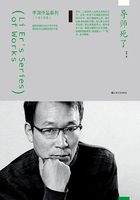In justice to the bureaucratic reformers in Russia, it must be said that they have preferred prevention to cure. Refraining from all Draconian legislation, they have put their faith in a system of ingenious checks and a complicated formal procedure. When we examine the complicated formalities and labyrinthine procedure by which the administration is controlled, our first impression is that administrative abuses must be almost impossible. Every possible act of every official seems to have been foreseen, and every possible outlet from the narrow path of honesty seems to have been carefully walled up. As the English reader has probably no conception of formal procedure in a highly centralised bureaucracy, let me give, by way of illustration, an instance which accidentally came to my knowledge.
In the residence of a Governor-General one of the stoves is in need of repairs. An ordinary mortal may assume that a man with the rank of Governor-General may be trusted to expend a few shillings conscientiously, and that consequently his Excellency will at once order the repairs to be made and the payment to be put down among the petty expenses. To the bureaucratic mind the case appears in a very different light. All possible contingencies must be carefully provided for. As a Governor-General may possibly be possessed with a mania for making useless alterations, the necessity for the repairs ought to be verified; and as wisdom and honesty are more likely to reside in an assembly than in an individual, it is well to entrust the verification to a council. A council of three or four members accordingly certifies that the repairs are necessary.
This is pretty strong authority, but it is not enough. Councils are composed of mere human beings, liable to error and subject to be intimidated by a Governor-General. It is prudent, therefore, to demand that the decision of the council be confirmed by the Procureur, who is directly subordinated to the Minister of Justice.
When this double confirmation has been obtained, an architect examines the stove, and makes an estimate. But it would be dangerous to give carte blanche to an architect, and therefore the estimate has to be confirmed, first by the aforesaid council and afterwards by the Procureur. When all these formalities--which require sixteen days and ten sheets of paper--have been duly observed, his Excellency is informed that the contemplated repairs will cost two roubles and forty kopecks, or about five shillings of our money. Even here the formalities do not stop, for the Government must have the assurance that the architect who made the estimate and superintended the repairs has not been guilty of negligence. A second architect is therefore sent to examine the work, and his report, like the estimate, requires to be confirmed by the council and the Procureur. The whole correspondence lasts thirty days, and requires no less than thirty sheets of paper! Had the person who desired the repairs been not a Governor-General, but an ordinary mortal, it is impossible to say how long the procedure might have lasted.*
In fairness I feel constrained to add that incidents of this kind occasionally occur--or at least occurred as late as 1886--in our Indian Administration. I remember an instance of a pane of glass being broken in the Viceroy's bedroom in the Viceregal Lodge at Simla, and it would have required nearly a week, if the official procedure had been scrupulously observed, to have it replaced by the Public Works Department.
It might naturally be supposed that this circuitous and complicated method, with its registers, ledgers, and minutes of proceedings, must at least prevent pilfering; but this a priori conclusion has been emphatically belied by experience. Every new ingenious device had merely the effect of producing a still more ingenious means of avoiding it. The system did not restrain those who wished to pilfer, and it had a deleterious effect on honest officials by making them feel that the Government reposed no confidence in them.
Besides this, it produced among all officials, honest and dishonest alike, the habit of systematic falsification. As it was impossible for even the most pedantic of men--and pedantry, be it remarked, is a rare quality among Russians--to fulfil conscientiously all the prescribed formalities, it became customary to observe the forms merely on paper. Officials certified facts which they never dreamed of examining, and secretaries gravely wrote the minutes of meetings that had never been held! Thus, in the case above cited, the repairs were in reality begun and ended long before the architect was officially authorised to begin the work. The comedy was nevertheless gravely played out to the end, so that any one afterwards revising the documents would have found that everything had been done in perfect order.
Perhaps the most ingenious means for preventing administrative abuses was devised by the Emperor Nicholas I. Fully aware that he was regularly and systematically deceived by the ordinary officials, he formed a body of well-paid officers, called the gendarmerie, who were scattered over the country, and ordered to report directly to his Majesty whatever seemed to them worthy of attention. Bureaucratic minds considered this an admirable expedient; and the Tsar confidently expected that he would, by means of these official observers who had no interest in concealing the truth, be able to know everything, and to correct all official abuses. In reality the institution produced few good results, and in some respects had a very pernicious influence. Though picked men and provided with good salaries, these officers were all more or less permeated with the prevailing spirit. They could not but feel that they were regarded as spies and informers--a humiliating conviction, little calculated to develop that feeling of self-















